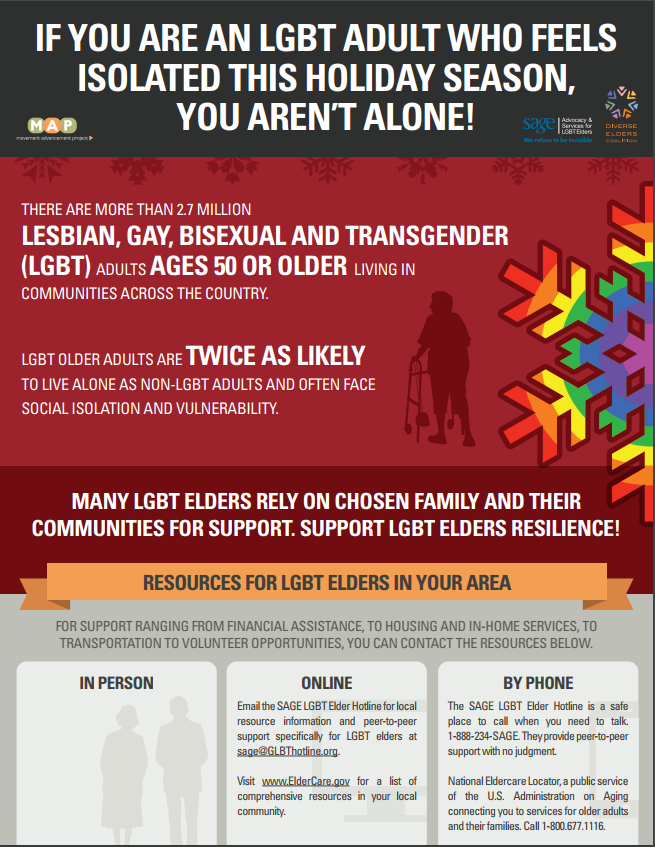Today, the Movement Advancement Project (MAP), SAGE, and the Diverse Elders Coalition released a new infographic in time for the holidays with resource links and information for lesbian, gay, bisexual and transgender (LGBT) older adults seeking support, as well as information about the challenges facing LGBT older adults.
Click here to print, download and share the new infographic!
For many older adults, the holidays can be a difficult time. However, this season can be particularly difficult for LGBT older adults. The lack of social and legal acceptance, both historically and currently, of LGBT people has had a profound impact on LGBT older adults. LGBT older adults are less likely to be married or partnered, and are twice as likely to live alone, leaving them particularly vulnerable to social isolation.
The infographic is designed to help isolated or lonely LGBT older adults in their communities know that they are not alone—and to give them options of where to go for help. It is translated into six languages: English, Spanish, Tagalog, Vietnamese, Arabic and Chinese. We will be working to get this resource into the hands of providers who support older adults to spread the work about local, federal and online resources available to LGBT older adults.
If you are a service provider, please consider printing this graphic, filling in local resources and posting in a public place. With your help, we can reach LGBT older adults in the community who need support.
If you are an advocacy organization, please forward this resource to service providers in your network, and share the infographic on social media.
This infographic builds off a report released in May by MAP and SAGE. Understanding Issues Facing LGBT Older Adults (www.lgbtmap.org/olderadults) takes a comprehensive look at the experiences of LGBT elders and the challenges to accessing the resources needed to age with support and dignity. The report also offers high-level recommendations for addressing the key disparities facing LGBT older adults.
The opinions expressed in this article are those of the author and do not necessarily reflect those of the Diverse Elders Coalition.


